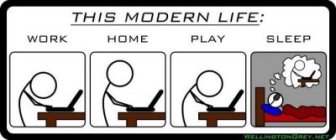Monthly Archives: December 2013
Strengths, Weaknesses and Finding your fit in EM
Posted by tjlasagna
It took me a long time to figure out the things I was good at, and the things I wasn’t so good at. Or maybe, rather, it took me a long time to accept it. Maybe that’s because it’s easy to see what you’re bad at, albeit tough to admit, and hard to give yourself credit for what you do well.

Kind of hoping the arm on the left represents my strengths…
For me, I know I’m great at developing new concepts and starting them off, I’m bad at following through and completing them. I’m sure of my decisions when directing others, but doubt my decisions when I’m the one pulling the trigger. I enjoy being in the middle of action and long for that hands-on response, but know I’m most useful waiting until there’s a role and a function I can fulfill. I have strengths and weaknesses, but in the end all I want is to do is provide an effective response. I know I’m talking a lot about me, but I do so because I want to exemplify a very important task that we all, including myself, need to do.
As folks involved in disaster, we have to recognize our weaknesses and our strengths. Not just know…recognize. And then plan to deal with them.
Don’t get me wrong, this statement is true for everyone. But the reason it is so critical for our field is because emergency management drives passion and excitement, and those things can cause us to enter superhero mode (and yes, I believe everyone I work with is a superhero) without realizing where we’re really needed.
When it comes to response, so many people want to save the day as soon as it is understood the day will need saving. It is one of the things that make our career field so different from many others…when our day gets worse (i.e. a disaster strikes), we can’t stop working. We don’t want to stop working. Our pulses race, our instincts take over and all we want to do is protect life, property and everything in between.
The problem with this is we are at great risk for doing a disservice to that which is motivating us. I want to protect my community, but I can’t if I’m burnt out. I can’t do that if I’m duplicating someone else’s efforts at the same time as them or if I haven’t recognized where I can do the most good. We want to keep working and want to fulfill every task because we want to protect everyone, but by not recognizing our strengths and weaknesses, we are not doing what is best for the community.

Can’t…stop…working…!
I have a special place in my heart for public information…it was my introduction to the world of emergency management over six and a half years ago. I knew my strength was working with the press because I had been on the other side of that relationship, but my excitement became my weakness because I’d develop tunnel vision when I was on the ground.
With the help of some very good mentors and the stress of real-life application, I realized I could easily become lost in the PIO role, and lost people are at risk for making bad decisions and being ineffective.
By recognizing my weakness, I was able to develop tools in order to manage it and then step back and figure out what my strength was in the same arena and learn how to make a true difference. I used to feel bad realizing that something I loved deeply wasn’t the best fit for me in its active form. Even now, I hate admitting this on my blog because I wouldn’t want anyone to lose faith in the assistance I can provide. But weaknesses are only disabling when you don’t make a plan to adjust to them or let them lead you to your other strengths.

Yep, still hate admitting it!
Now, wherever I am involved in my broader level of emergency response, public information is addressed where it may often be neglected. I’m great at Joint Information Center support and evaluation and found that social media is a niche I am most at ease with…a largely uncharted territory in EM.
I wanted to share this piece of my journey in identifying some of my weaknesses and strengths because once I finally did, my effectiveness in emergency management was altered in such a positive way. You may be amazing at on-scene media management and speaking for your agency. Or maybe you are the BEST at training others. Or an invaluable asset with your ability to track supplies or finances. Perhaps you are level-headed in disaster and perform flawlessly as boots on the ground, providing those critical services that literally save lives.
Whatever it is that you are the best at, give yourself credit for it. And then stop letting your weaknesses get in the way of finding your perfect fit.